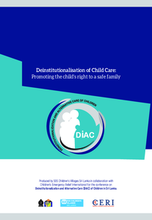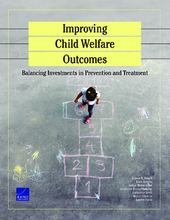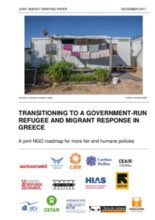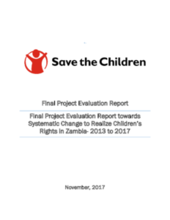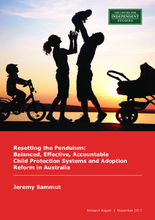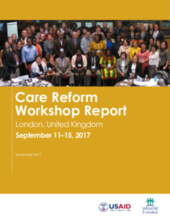Displaying 461 - 470 of 1025
This outline of alternative care, both conceptually and in the Sri Lankan context, provides insight into both the current system and what efforts are yielding results.
The objective of this essay is to determine how substitute child care in the Czech Republic has changed in the last ten years.
This study is the first attempt to integrate maltreatment risk, detection, pathways through the child welfare system, and consequences in a comprehensive quantitative model that can be used to simulate the impact of policy changes.
This report presents a joint NGO roadmap for more fair and humane policies for refugee and migrant youth in Greece.
This article will discuss the impact of reforms on time limits in decision-making for children, questioning whether they achieve both good decisions for children and justice for families.
This study examined the status of the State Program on Deinstitutionalization and Alternative Care (SPDAC), a public policy aimed at transforming 55 institutions covering 14,500 children during 2006–2016 in Azerbaijan.
This study examined the status of the State Program on Deinstitutionalization and Alternative Care (SPDAC), a public policy aimed at transforming 55 institutions covering 14,500 children during 2006-2016 in Azerbaijan.
The purpose of this endline evaluation is to assess the CRG, CP and HIV&AIDS achievements against the project goal and outputs.
This research report reviews the child protection and adoption policies in Australia and the long-term plan of the New South Wales (NSW) government "to restructure the operation of the child protection system to increase sustainability and improve performance by achieving permanency for more children."
This report outlines the sessions of a workshop help in London with representatives from four countries participating in a USAID/DCOF-funded activity aimed at intensifying country leadership in advancing national efforts on behalf of children who lack adequate family care, and provides highlights, key discussion points, and action items.

